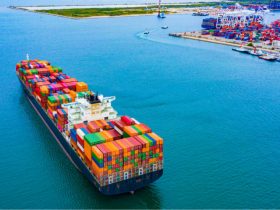
Algeria pharmaceutical companies
Algeria’s pharmaceutical industry has seen significant growth over the past two decades, driven by a combination of government support, rising domestic demand, and foreign investment. As one of the largest markets in North Africa, Algeria has prioritized local pharmaceutical production to reduce reliance on imports and ensure better access to medicines for its population. This strategy has led to the emergence of a robust domestic pharmaceutical sector that includes both public and private companies.
One of the key players in the Algerian pharmaceutical sector is Saidal Group, the largest state-owned pharmaceutical company in the country. Established in 1982, Saidal has played a central role in Algeria’s drug manufacturing industry. It produces a wide range of medicines including antibiotics, analgesics, and treatments for chronic diseases. With several manufacturing units across the country and partnerships with international firms, Saidal continues to expand its product portfolio and improve its production capabilities.
The private sector also contributes significantly to the pharmaceutical landscape in Algeria. Companies such as Biopharm, LDM, and Pharmalliance have established themselves as major players, producing generic medicines, nutritional supplements, and over-the-counter products. Biopharm, in particular, is known for its modern manufacturing facilities and collaborations with global pharmaceutical firms. The company has invested heavily in research, quality control, and logistics to enhance its competitiveness both locally and in regional markets.
Foreign pharmaceutical companies also operate in Algeria, often through joint ventures or licensing agreements with local firms. Multinational corporations such as Sanofi, Pfizer, and Novartis have a presence in the country, contributing to the transfer of technology and expertise. Sanofi, for example, has a major production site in Algeria that manufactures drugs for both the local and export markets.
To support the growth of the pharmaceutical industry, the Algerian government has implemented policies that encourage local production, including import restrictions on certain medications that can be manufactured domestically. The goal is to achieve pharmaceutical self-sufficiency and reduce the trade deficit. These policies have led to an increase in the number of production sites, investments in quality control laboratories, and employment opportunities in the sector.
In conclusion, Algeria’s pharmaceutical industry is a vital component of its economy and public health infrastructure. With a mix of strong local companies, international partnerships, and supportive government policies, the sector is well-positioned for continued growth and innovation. As demand for healthcare products continues to rise, Algerian pharmaceutical companies are expected to play an increasingly important role in meeting both domestic and regional needs.


Leave a Reply